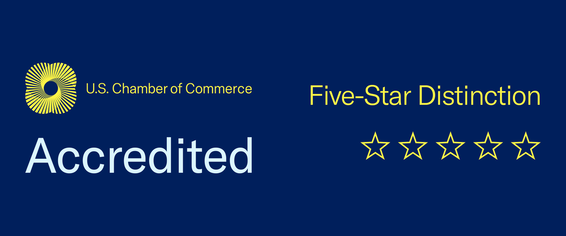|
A recent study asserts that even during the midst of a global pandemic, Polk State College’s credit programs add $215.5 million in total income to the Polk County economy. The College commissioned a study by Emsi Burning Glass last year using Fiscal Year 2020-2021 data for degree-seeking students to establish a baseline as it updates its strategic plan and prepares for significant growth in student enrollment, programs, and geographic footprint. Polk State College programs include 24 associate degrees -- the Associate in Arts and Associate in Science degrees -- and six baccalaureate degrees, including a Bachelor of Applied Science and Bachelor of Science degrees. Of the College’s total economic impact, 55% or $118.3 million is a direct result of the increased earnings students and alumni receive because of their Polk State College education.
“The value a Polk State College education adds to not only the lives of our students, but also to their families and our community, is undeniable,” Polk State President Angela Garcia Falconetti said. “This study affirms the positive impact our institution has on Polk and provides a foundation from which to further prepare Polk State for the future population growth we will experience throughout our County.” Additional findings include Polk State’s day-to-day operational spending by employees and students, which adds $97.2 million in income to the County annually. To put this in perspective, one out of every 94 jobs in Polk County is supported either directly or indirectly by the activities of Polk State College and its students; if Polk State didn’t exist, the County economy would be less one job out of every 94. While the impact on the Polk County economy is significant, Polk State prides itself in providing affordable education and training that transforms the trajectory of the lives of students and their families. This study confirms Polk State’s success. The average associate degree graduate from Polk State will see an average increase in earnings of $6,700 annually, and the average bachelor’s degree graduate will see an increase in earnings of $22,100 compared to an individual with a high school diploma or equivalent working in Florida. For every $1 a student invests in Polk State in the form of out-of-pocket expenses and forgone time and money, they will receive a cumulative value of $5 in higher future earnings. The resulting average annual return on investment for Polk State students in degree programs is 18.7%; beating the U.S. stock market’s 30-year average rate of return of 10.6%. Additionally, the cost of a Polk State College education continues to be half that of a state university and a fraction of that of private institutions, making it one of the most affordable local options. “This information comes as no surprise to the College which is poised on the cusp of significant growth,” Falconetti said. “Polk State remains committed to providing affordable, quality, life-transforming education.” The economic impact report was released as Polk State prepares for its largest growth period in over a decade. Polk County remains one of the fastest growing areas in the nation with an estimated 45 people moving to the County daily. As Polk County’s largest-serving public institution of higher education with a vision of becoming the community’s first choice in higher education and training, Polk State is moving quickly to ensure that it will meet the needs of a rapidly expanding community. In May 2022, the College launched two training opportunities for individuals seeking education and training in Human Resources Management, including a concentration within the Bachelor of Applied Science in Supervision and Management and an advanced certificate option. Students who complete these programs can embark on fulfilling careers as HR specialists and managers with entry wages of $39,500 and $66,500 and median wages reaching $56,000 and $102,500. The College is also completing the accreditation and approval process for an Associate in Science in Hospitality and an Associate in Science in Surgical Technology, which are projected to launch in fall 2023 and spring 2023, respectively. Additionally, the College was appropriated critical funding during the 2022 Legislative Session to expand existing workforce programs. Investments made to expand programs including all health sciences programs such as Radiography, Respiratory Care, Nursing, and Supply Chain Management have allowed the College to enhance student retention and completion rates which will increase the number of graduates entering the workforce. Polk State’s mission is to provide affordable, accessible, quality higher education and workforce training programs to all residents of the County and as such the College is pursuing the development of the Haines City-Davenport Campus to serve Northeast Polk County. The development of a campus in Northeast Polk County on property the College owns on U.S. 27 has been a priority of President Garcia Falconetti since she began her tenure in 2017. According to data from Polk County, Northeast Polk is projected to have an additional 201,000 people and 91,000 dwelling units by 2045. This growth is also expected to bring an additional 38,500 K-12 students. “Our County is growing and the need to provide access to affordable higher education and workforce training is critical to developing economic opportunities and enhanced quality of life for students and their families,” Falconetti said. “Polk State is our community’s college, and we want to ensure that no matter where individuals live in Polk County, anyone seeking to further their education and training can do so with us.” About Polk State College Located in Winter Haven, Florida, and established in 1964, Polk State College is a multi-campus institution serving more than 14,000 students with Bachelor of Applied Science, Bachelor of Science, Associate in Arts, and Associate in Science degrees, as well as 9,000 individuals in a wide range of certificate and workforce training programs. The College also operates three charter high schools. Polk State’s advantages include small class sizes; hands-on learning; dedicated faculty; day and night classes; online options; affordable tuition; excellent financial aid; and a diverse community and vibrant student life, including fine arts opportunities, clubs, and intercollegiate athletics.
0 Comments
Your comment will be posted after it is approved.
Leave a Reply. |
Upcoming Events |
|


